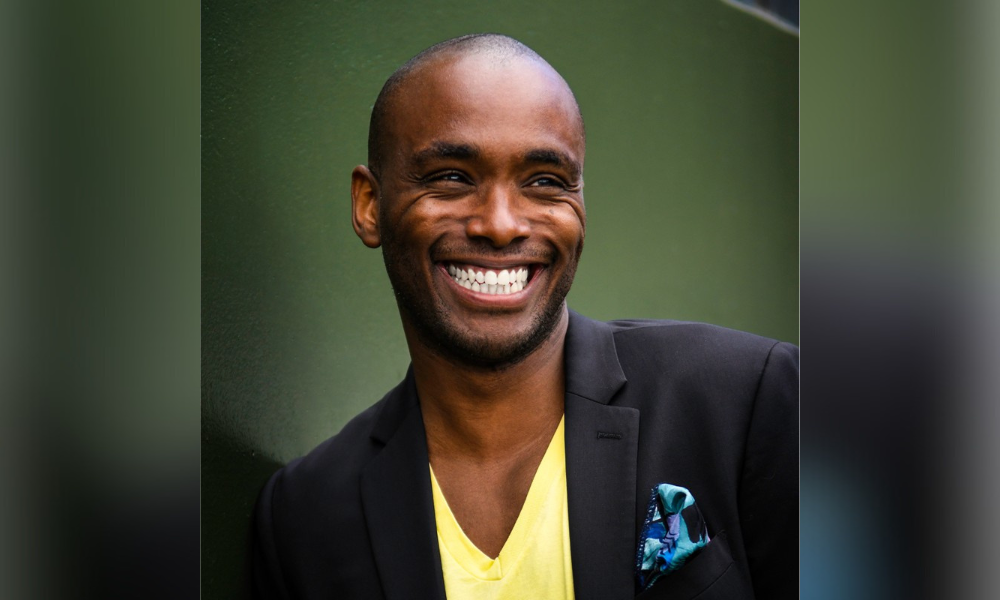
'I think it's very lazy,' says diversity expert

There’s no neat ‘one-size-fits-all’ approach when it comes to tackling racism, says LeRon Barton.
Speaking with HRD, the writer, author and in-demand TEDx speaker on all things race and equity says that he’s fed up with diversity groupings in HR – terms that essentially throw a blanket experience on anyone who’s not white.
“I think it's very lazy,” says Barton. “It essentially says that, ‘Oh, because you're not white, we all have the same experience, the same problem, the same issues.’ And yes, we do all suffer [from] racism and white supremacy – but our individual experiences with that are different. That’s why I think terms like BIPOC are goofy.”
Listen to HRD Talk’s full podcast here.
BIPOC, which stands for Black, Indigenous, People of Colour, as an acronym is thought to have first surfaced on social media around 2013 – garnering popularity after the murder of George Floyd in 2020. And while it’s an attempt to reflect both Black and Indigenous cultures, critics of the terms think it’s too broad – and ultimately harms experiences rather than elevating them.
For Barton, he believes these diversity groups are an offset of people being afraid to use certain terms in the workplace – like Black, for example.
“I think people will do anything and everything to avoid saying the word ‘Black’,” says Barton. “Personally, I think Black is beautiful. There’s another phrase – the ‘global majority’ – that’s goofy as well. I am a 44-year-old Black man, I don't want to be called anything other than Black. So please don't refer to me as anything other than Black. For me, being afraid or hesitant to say the word suggests you’re anti-Black – as if you have a negative view of Blackness.”
It seems this stems from an innate anxiety around saying something wrong, - especially in the workplace. According to a study from Right Track, 55% of employees are too sacred to talk about diversity and inclusion for fear of saying the wrong thing.
When it comes to talking about 'diversity and inclusion' at work, are you mostly:
— RightTrack Learning (@RightTrack) March 23, 2021
And while it’s understandable that employees might be nervous, it’s a poor reflection on employers and HR teams. After all, it is HR’s job to educate workers on what to say and how to say it around DEI – fostering an open and respectful dialogue on race and equity. But do HR and employers realize how wrong they’re getting it?
“HR works at the behest of management, so HR isn't their own entity,” Barton says. “At the end of the day, HR is a part of the company so I don't I don't know if they truly even care or get it.”
With diversity being such an important and broad topic, HR can’t afford to slip up. Changing the narrative is easier said than done – but to do so means owning up to playing lip service to diversity pushes.
“A lot of employers tend to do very cosmetic things,” says Barton. “It’s very ineffective. Employers will have people that look like myself as window dressing just to prove that they’re a diverse company. However, there’s no Black people that represent leadership – that’re in a position to change things.”
It’s the difference between looking right and getting it right. With this sort of false diversity, Barton says that organizations are more concerned with looking like they’re diverse rather than actually being proactive about it.
“And if you talk to many Black people in the corporate world, they’ll say their employers are getting it all wrong. And that’s because we’re simply not listened to. When we tend to bring up racism, we're always looked at as being complainers, as troublemakers, as being people that’re riling up folks. And when a Black person finally goes to HR and complains about hostility, we tend to think nothing will actually change.”
This is where trust comes in – or rather, rebuilding trust. If HR encourages employees to approach them with concerns, and then does nothing to follow up or rectify the issue, it damages that crucial relationship. Data from ARRIS Composites found that 34% of employees wouldn’t approach HR with an issue because of sheer mistrust – and a lack of comfortability with their representative. Compound that situation with race and diversity and it’s little wonder employees are nervous about speaking up when they see workplace discrimination.
Reinforcement is key. According to a one study – The Bias of Crowds – if employers don’t continually reinforce anti-bias, racism can return to its pre-training level in a mere 24 hours. As for advice, Barton says that any employers looking to instigate real, meaningful change need to understand the nature of equity.
“Understand that your Black employees will have a different experience to your Chinese employees, who’ll have a different experience to your Filipino employees – don’t group everyone collectively all together. Take the time to focus on each individual group in there.
“The actor Benjamin Bratt says that ‘specificity equals authenticity’. When we narrow and focus on a problem or an issue, we tend to come up with a solution that is specific to that problem - something that tailored to that issue.”
Listen to HRD Talk’s full podcast here.